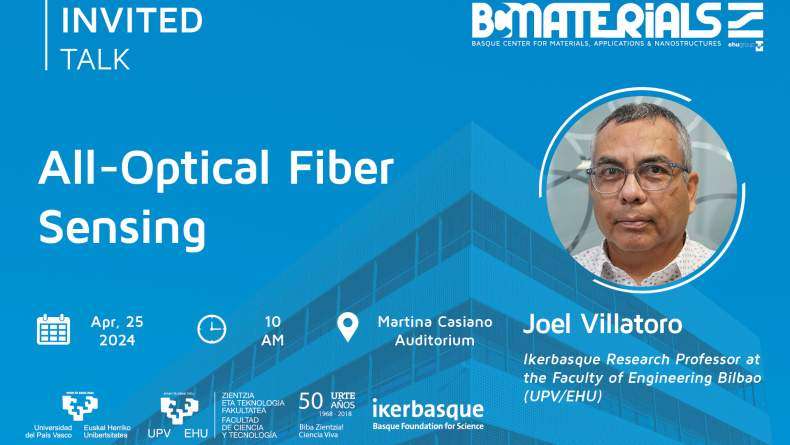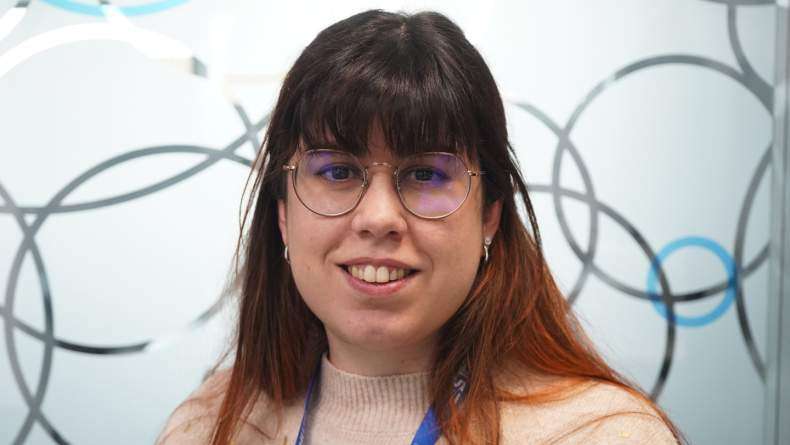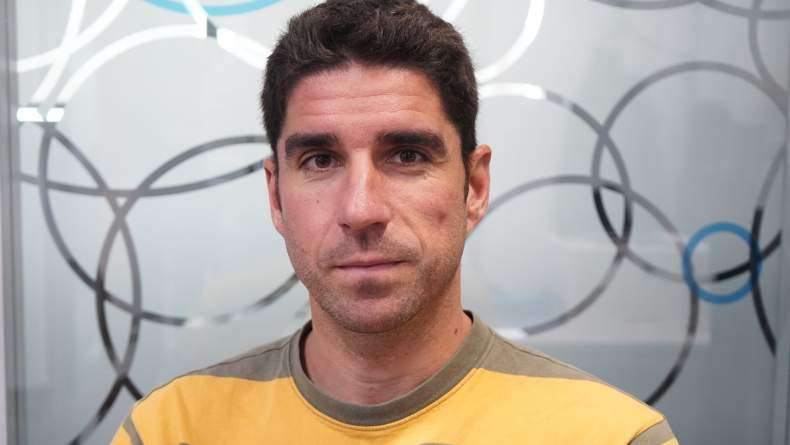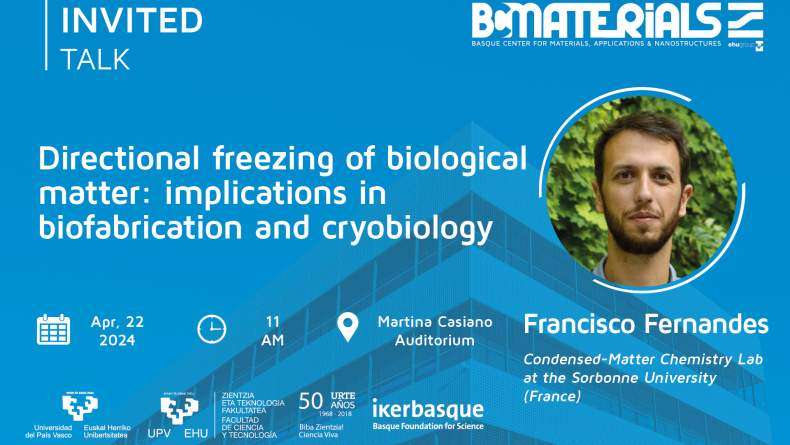Fortnightly seminars online: Deciphering the impact of electrical charges on cell behaviour by Sara Martin & Integration of multifunctional materials in POC devices by Joseba Totoricaguena

Deciphering the impact of electrical charges on cell behaviour
Piezoelectric materials, that is materials that generate an electric current when mechanically loaded, are of interest for various applications, including biomedicine. In fact, electrical stimulation is known to regulate a number of physiologic processes, ranging from bone forming to endothelial cell homeostasis. For this reason, great attention is being directed to the analysis of the influence of piezoelectric polymers on the behaviour of cells with the aim of controlling specific responses related to cell proliferation, growth, migration and differentiation.
In this seminar, I will talk about PVDF as a selected piezoelectric substrate and discuss how it affects the behaviour of Natural Killers (NKs). These cells of the innate immune system have shown great potential for the treatment of tumors resistant to standard treatment, but their wide use in clinical practice is hampered by the difficulty of amplifying them in vitro. In this context, I will show results on NK cell proliferation, survival and surface marker expression analyzed by flow cytometry. Our results suggest that static NK culture on positively-poled PVDF renders increased NK cell number, pointing to its potential for the ex vivo amplification of this cell type. Finally, I will discuss the new steps of my research and future perspectives at BCMaterials.
Integration of multifunctional materials in POC devices
Point Of Care (POC) devices enable immediate diagnostics for a better evaluation, diagnostic, treatment of patients and optimization of clinical results. Most current POC devices require specific instrumentation, such as potentiostats or optical readers. One way to make more accessible PoC devices is to use mobile phones as wireless power supply and detection equipment, leading to a rapid, robust, equipment-free and user friendly analysis. In this seminar, I will briefly explain the general ideas of my PhD project. The main goal is to design, produce and characterize devices that rely on the mobile phone as instrumentation platform. Biosensor information will be obtained by the mobile phone as either an electrical or an optical signal. Next, I will present the work done in the first 4 months and, last, I will explain my future work.
The seminar will be online due to COVID restrictions.
https://teams.microsoft.com/l/meetup-join/19%3ameeting_YmNmOTU1ZGUtMTdiNS00OTQ4LTk1YTEtZjM3YmVhMTUyZmI5%40thread.v2/0?context=%7b%22Tid%22%3a%222f54ab68-83af-4d70-8895-a0d1e95ec899%22%2c%22Oid%22%3a%227778b4e1-e06d-485b-b530-cf013d4e9498%22%2c%22IsBroadcastMeeting%22%3atrue%7d
Related news
Invited Talk with Joel Villatoro on April 25
On April 25, BCMaterials will receive Dr. Joel Villatoro as a new invited speaker with the talk entitled “"All-Optical Fiber Sensing". The talk will start at 10:00 at the Martina Casiano auditorium (…Eloie Gallego, New Research Technician Assistant
BCMaterials welcomes Eloie Gallego, who joins our center as new Research Technician Assistant. She will work giving service to a growing laboratory activity in our facilities. Eloie’s academical and…Jorge Saiz, New Ramón y Cajal Researcher at BCMaterials
We are happy to receive Jorge Saiz Galindo as new Ramón y Cajal Fellow, post-doctoral researcher in BCMaterials. Dr. Saiz obtained his degree in Biology and his PhD at the University of Alcalá, in…Invited Talk with Francisco Fernandes on April 22
BCMaterials will offer a new invited talk on April 22 with Francisco Fernandes, Associate Professor of the Condensed-Matter Chemistry Lab at the Sorbonne University (France) The talk will begin at…



